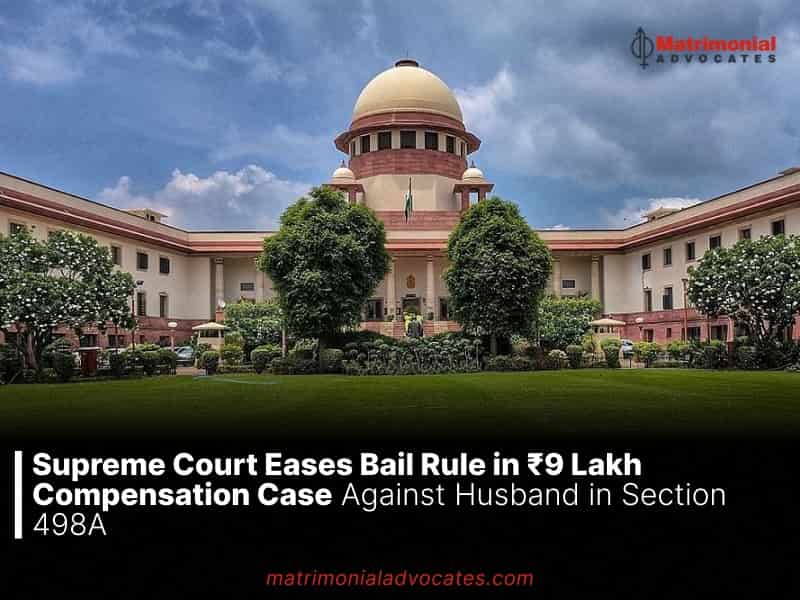
A bench of Justices Sanjiv Khanna and SVN Bhatti said that the High Court was not justified in imposing the condition on the husband to pay ₹9 lakh to his estranged wife as ad-interim compensation.
In the case titled “Rohit Jaiswal vs State of Jharkhand and anr,” the Jharkhand High Court had previously imposed a condition for anticipatory bail. This condition mandated that Mr. Rohit Jaiswal, the appellant facing allegations of cruelty under Section 498A of the Indian Penal Code (IPC), provide ₹9 lakh as ad-interim compensation to his estranged wife. The Supreme Court, in its recent ruling, determined that the imposition of this condition by the High Court was unjustified. This decision was rendered by a bench comprising Justices Sanjiv Khanna and SVN Bhatti.
“We are of the opinion that the High Court was not justified in imposing the condition that the appellant – Rohit Jaiswal should deposit ₹9,00,000 as ad interim victim compensation. The said condition is hereby deleted. We clarify that we have not interfered with the grant of anticipatory bail and other conditions as imposed,” the bench stated in its order passed on September 27.
The aforementioned observations and resulting judgment were rendered in the course of adjudicating appeals filed by the husband, challenging a previous order issued by the Jharkhand High Court in the month of April in the preceding year.
In the antecedent High Court ruling, the appellant was granted anticipatory bail, subject to the condition that he provide ₹9 lakh as interim compensation to the victim.
In its ultimate verdict, the Supreme Court duly acknowledged the husband’s acquiescence to enhance the monthly maintenance allocation for his wife, elevating it from ₹4,000 to ₹10,000 per month, in accordance with a course of action recommended by the Court itself.
“The maintenance amount is being enhanced in view of the statement made by the learned counsel appearing on behalf of the appellant to ₹10,000 per month. The appellant – Rohit Jaiswal will continue to make payment in terms of the statement. In case of default, respondent no.2/ informant will be entitled to take steps/recourse for execution before the trial court,” the Court directed.
The Supreme Court has explicated that the quantum of maintenance, initially ascertained based on the appellant’s averments, remains subject to potential variations, whether by augmentation or diminution, at the discretion of either the trial court or the appellate court.
The legal representation for the appellant was orchestrated by a consortium of legal practitioners affiliated with VMZ Chambers, which encompassed the following advocates: Shreeyash U Lalit, Mahesh Kumar, Nikhilesh Kumar, Aman Preet Singh Rahi, Devika Khanna, and VD Khanna.
Conversely, the counsel advocating for the interests of the Jharkhand government were composed of lawyers Madhusmita Bora, Pawan Kishore Singh, Dipankar Singh, Anupama Sharma, Amar Jyoti Sharma, and Vedika Dalmia.
Advocates MM Singh, Naveen Thakur, and Rameshwar Prasad Goyal were retained to represent the wife who initiated the legal proceedings.





